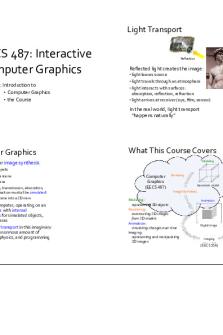Language Register - Lecture notes 1 PDF

| Title | Language Register - Lecture notes 1 |
|---|---|
| Course | Secondary Education |
| Institution | University of Antique |
| Pages | 3 |
| File Size | 35.5 KB |
| File Type | |
| Total Downloads | 71 |
| Total Views | 138 |
Summary
Michael Corpuz...
Description
Language Registers
There are five language registers or styles. Each level has an appropriate use that is determined by differing situations. It would certainly be inappropriate to use language and vocabulary reserve for a boyfriend or girlfriend when speaking in the classroom. Thus the appropriate language register depends upon the audience (who), the topic (what), purpose (why) and location (where).
You must control the use of language registers in order to enjoy success in every aspect and situation you encounter.
1.
Static Register
This style of communications RARELY or NEVER changes. It is “frozen” in time and content. e.g. the Pledge of Allegiance, the Lord’s Prayer, the Preamble to the US Constitution, the Alma Mater, a bibliographic reference, laws .
2.
Formal Register
This language is used in formal settings and is one-way in nature. This use of language usually follows a commonly accepted format. It is usually impersonal and formal. A common format for this register are
speeches. e.g. sermons, rhetorical statements and questions, speeches, pronouncements made by judges, announcements.
3.
Consultative Register
This is a standard form of communications. Users engage in a mutually accepted structure of communications. It is formal and societal expectations accompany the users of this speech. It is professional discourse. e.g. when strangers meet, communications between a superior and a subordinate, doctor & patient, lawyer & client, lawyer & judge, teacher & student, counselor & client,
4.
Casual Register
This is informal language used by peers and friends. Slang, vulgarities and colloquialisms are normal. This is “group” language. One must be member to engage in this register. e.g. buddies, teammates, chats and emails, and blogs, and letters to friends.
5.
Intimate Register
This communications is private. It is reserved for close family members or intimate people. e.g. husband & wife, boyfriend & girlfriend, siblings, parent & children.
Rule of Language Use:
One can usually transition from one language register to an adjacent one without encountering repercussions. However, skipping one or more levels is usually considered inappropriate and even offensive....
Similar Free PDFs

C Language IN Hindi - Lecture notes 1-55
- 115 Pages

Lecture notes, lecture 1
- 9 Pages

Lecture notes, lecture 1
- 4 Pages
Popular Institutions
- Tinajero National High School - Annex
- Politeknik Caltex Riau
- Yokohama City University
- SGT University
- University of Al-Qadisiyah
- Divine Word College of Vigan
- Techniek College Rotterdam
- Universidade de Santiago
- Universiti Teknologi MARA Cawangan Johor Kampus Pasir Gudang
- Poltekkes Kemenkes Yogyakarta
- Baguio City National High School
- Colegio san marcos
- preparatoria uno
- Centro de Bachillerato Tecnológico Industrial y de Servicios No. 107
- Dalian Maritime University
- Quang Trung Secondary School
- Colegio Tecnológico en Informática
- Corporación Regional de Educación Superior
- Grupo CEDVA
- Dar Al Uloom University
- Centro de Estudios Preuniversitarios de la Universidad Nacional de Ingeniería
- 上智大学
- Aakash International School, Nuna Majara
- San Felipe Neri Catholic School
- Kang Chiao International School - New Taipei City
- Misamis Occidental National High School
- Institución Educativa Escuela Normal Juan Ladrilleros
- Kolehiyo ng Pantukan
- Batanes State College
- Instituto Continental
- Sekolah Menengah Kejuruan Kesehatan Kaltara (Tarakan)
- Colegio de La Inmaculada Concepcion - Cebu












